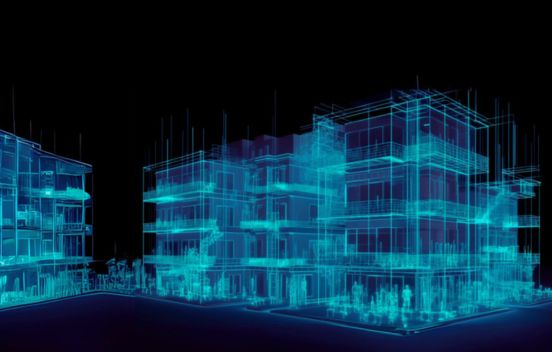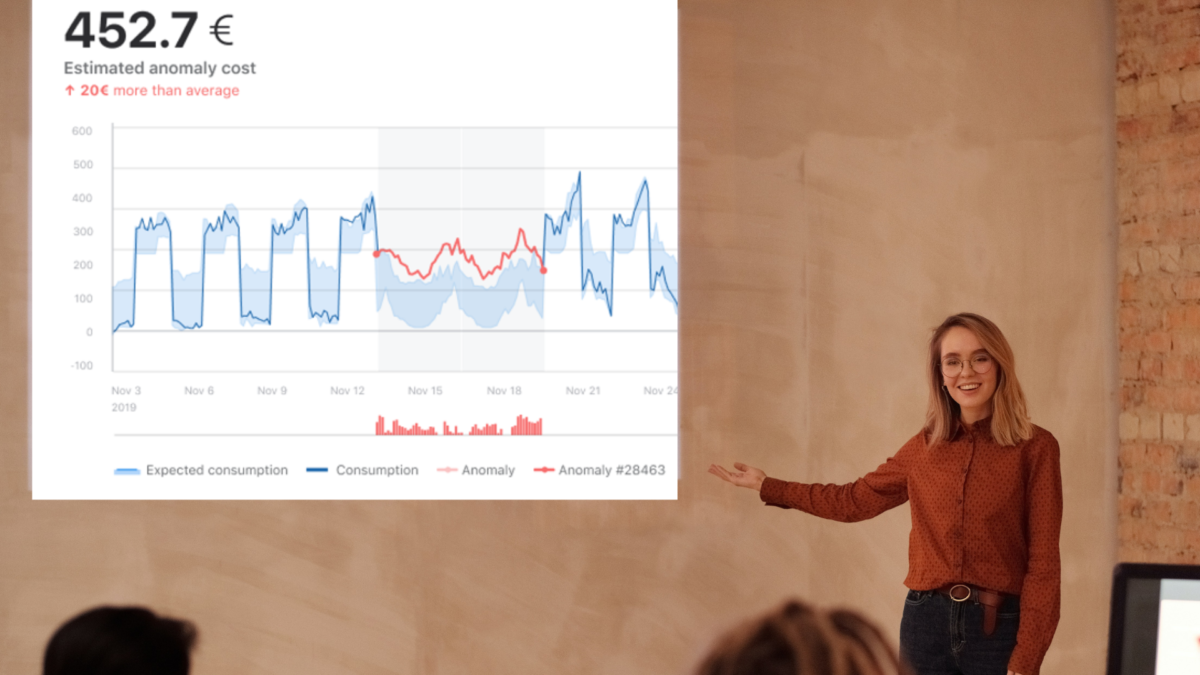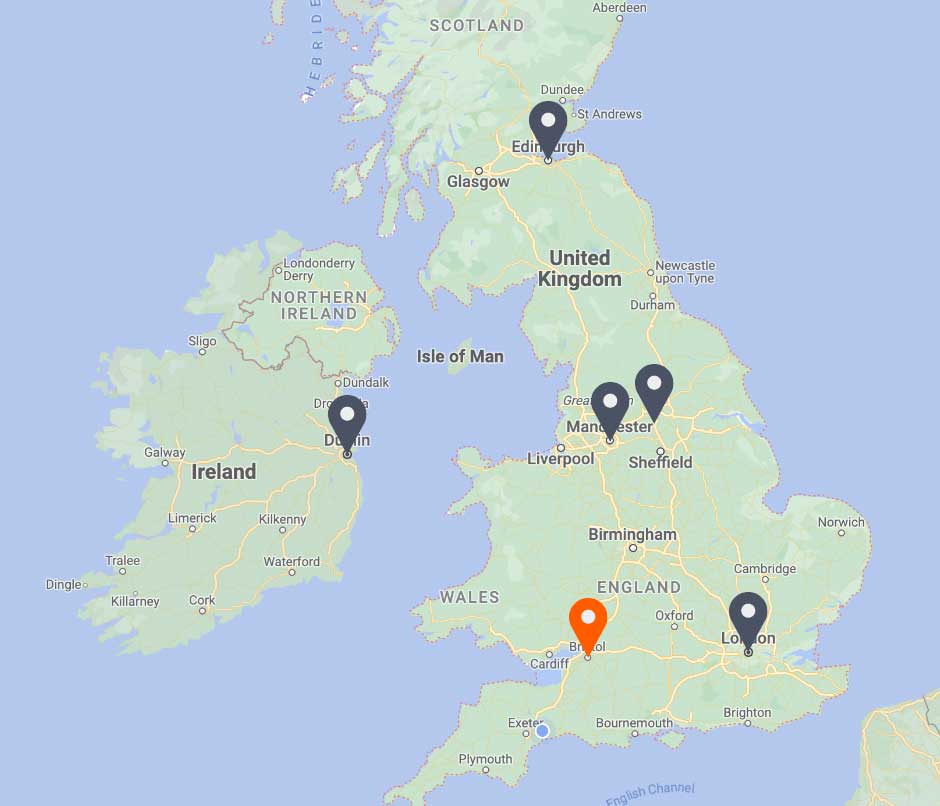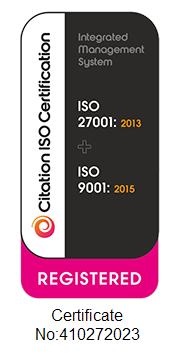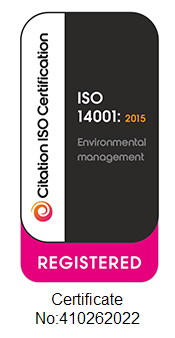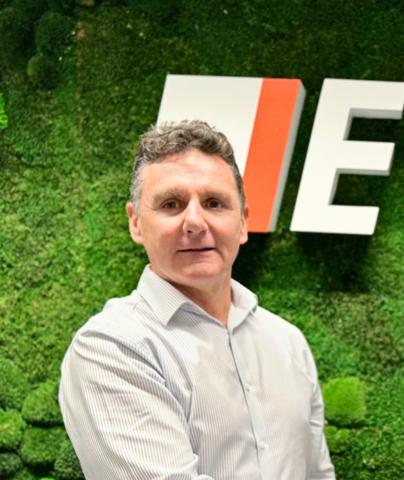
Streamlined Energy and Carbon Reporting | SECR compliance
SECR Reporting | Secr Compliance
Comply with SECR reporting legislation & Enjoy substantial energy savings
Over 11,900 organisations in the UK must comply with SECR by reporting energy usage and carbon emissions in their annual financial report. Through SECR reporting, large organisations are able to take significant actions towards reducing their carbon footprint and enhancing their energy efficiency.
Companies and LLPs that consume less than 40MWh of energy during the reporting period are exempt from statutory de minimis. Nevertheless, they need to confirm their low energy usage in the report. Concerning group reports, both the parent group and its subsidiaries’ energy consumption should not exceed the low energy user threshold. The group-level report is required to include energy and carbon information for the parent group and subsidiaries. If a subsidiary is not obliged to report under SECR, there is an option to be excluded. UK subsidiaries that are required to report under SECR can omit energy and carbon information in their own subsidiary accounts and reports, provided that these obligations are already met through the parent’s group-level report. Companies that are registered outside the UK are also exempt from SECR compliance.
What is SECR? Who needs to comply with SECR?
British government requires large organisations that have consumed more than 40,000 kilowatt-hours (kWh) of energy in the reporting period to include energy and carbon information in their directors’ report, for any period beginning on or after 1 April 2019.
For companies registered in the UK as quoted or large unquoted companies or large Limited Liability Partnerships (LLPs), it is mandatory to comply with Streamlined Energy and Carbon Reporting. You can also confirm whether your company qualifies as ‘large’ by meeting two of the following three criteria:
- More than 250 employees
- A turnover greater than £36m
- Balance sheet totals more than £18m
After 6th April 2022, all UK companies (quoted companies, large unquoted companies, or large LLP) that are currently required to produce a non-financial information statement will need to disclose how climate-related risks are identified, accessed, and managed. This will form part of your organisation’s Non-Financial and Sustainability Information Statement in your 2023 energy and carbon report.
SECR guidance | Empower your compliance with ETS
There is no fixed methodology for SECR compliance, but organisations are encouraged to go beyond the minimum requirements and voluntarily report on any additional sources of energy use or greenhouse gas emissions, including scope 3 emissions. This disclosure should cover the same annual period as the financial year. Furthermore, it is strongly advised for external verification or assurance to ensure accuracy, completeness, and consistency of data for both internal and external stakeholders. SECR carbon reporting is a powerful move that can help businesses identify cost-effective ways to improve sustainability, stay on top of key environmental metrics, mitigate risks stemming from fluctuating prices, and enhance transparency through better disclosures.

We ensure step-by-step SECR guidance.
Step 1 – Determine Compliance – Check that your company meets the requirements
Step 2 – Gather Energy Data – Calculate your total energy use for all energy streams including transport
Step 3 – Calculate Emissions – Calculate related UK GHG Emissions from energy use
Step 4 – Report – Report on energy use and GHG emissions including intensity metric, previous year’s figures, energy efficiency actions taken and methodology
Step 5 – Submit to Companies House – File Director’s report to Companies House by set deadline and consider publication on company website
We have supported numerous clients for SECR carbon reporting and identified substantial energy saving opportunities. With elaborate reports and energy corrections, companies are able to maximise energy efficiency and boost renewable energy transition.
If you have any questions or would like to discuss further what you should be doing, ETS is here and willing to help.
Accelerating Net Zero Progress: Utilising Data Models for Effective Planning and Carbon Reporting.
Streamlined Energy & Carbon Reporting (SECR) – Updates
An innovative solution for balancing people and planet under climate emergency.


CLOSE X
Phil Bilyard Operations Director
Phil has a Graduateship with the City &Guilds and a HND in Engineering. He is an Incorporated Engineer (IEng), Chartered Energy Manager, ESOS Lead Assessor and CIBSE Accredited Air Conditioning Inspector. Phil is also a Full Member of the Energy Institute (MEI), Institution of Engineering and Technology (MIET) and an Associate Member of CIBSE (ACIBSE).
Phil started his career providing specialist engineering support in the Army’s Corps of Royal Engineers before pursuing a career in facilities management. He has work across a range of sectors and undertaken a number of roles including Building Services Engineer, Electrical Specialist, Project Manager and Contract Manager. His expertise includes Air and Water Quality Management, Low Carbon Consulting and Project Management.
After joining ETS in 2010 as a Senior Consulting Engineer, Phil quickly progressed into the role of Operations Director. His role at ETS includes managing our operational team in the delivery of technical consultancy and energy management for our Retail and FM & Property clients.


CLOSE X
Phil Bilyard Operations Director
Phil has a Graduateship with the City &Guilds and a HND in Engineering. He is an Incorporated Engineer (IEng), Chartered Energy Manager, ESOS Lead Assessor and CIBSE Accredited Air Conditioning Inspector. Phil is also a Full Member of the Energy Institute (MEI), Institution of Engineering and Technology (MIET) and an Associate Member of CIBSE (ACIBSE).
Phil started his career providing specialist engineering support in the Army’s Corps of Royal Engineers before pursuing a career in facilities management. He has work across a range of sectors and undertaken a number of roles including Building Services Engineer, Electrical Specialist, Project Manager and Contract Manager. His expertise includes Air and Water Quality Management, Low Carbon Consulting and Project Management.
After joining ETS in 2010 as a Senior Consulting Engineer, Phil quickly progressed into the role of Operations Director. His role at ETS includes managing our operational team in the delivery of technical consultancy and energy management for our Retail and FM & Property clients.


CLOSE X
Phil Bilyard Operations Director
Phil has a Graduateship with the City &Guilds and a HND in Engineering. He is an Incorporated Engineer (IEng), Chartered Energy Manager, ESOS Lead Assessor and CIBSE Accredited Air Conditioning Inspector. Phil is also a Full Member of the Energy Institute (MEI), Institution of Engineering and Technology (MIET) and an Associate Member of CIBSE (ACIBSE).
Phil started his career providing specialist engineering support in the Army’s Corps of Royal Engineers before pursuing a career in facilities management. He has work across a range of sectors and undertaken a number of roles including Building Services Engineer, Electrical Specialist, Project Manager and Contract Manager. His expertise includes Air and Water Quality Management, Low Carbon Consulting and Project Management.
After joining ETS in 2010 as a Senior Consulting Engineer, Phil quickly progressed into the role of Operations Director. His role at ETS includes managing our operational team in the delivery of technical consultancy and energy management for our Retail and FM & Property clients.


CLOSE X
Phil Bilyard Operations Director
Phil has a Graduateship with the City &Guilds and a HND in Engineering. He is an Incorporated Engineer (IEng), Chartered Energy Manager, ESOS Lead Assessor and CIBSE Accredited Air Conditioning Inspector. Phil is also a Full Member of the Energy Institute (MEI), Institution of Engineering and Technology (MIET) and an Associate Member of CIBSE (ACIBSE).
Phil started his career providing specialist engineering support in the Army’s Corps of Royal Engineers before pursuing a career in facilities management. He has work across a range of sectors and undertaken a number of roles including Building Services Engineer, Electrical Specialist, Project Manager and Contract Manager. His expertise includes Air and Water Quality Management, Low Carbon Consulting and Project Management.
After joining ETS in 2010 as a Senior Consulting Engineer, Phil quickly progressed into the role of Operations Director. His role at ETS includes managing our operational team in the delivery of technical consultancy and energy management for our Retail and FM & Property clients.


CLOSE X
Phil Bilyard Operations Director
Phil has a Graduateship with the City &Guilds and a HND in Engineering. He is an Incorporated Engineer (IEng), Chartered Energy Manager, ESOS Lead Assessor and CIBSE Accredited Air Conditioning Inspector. Phil is also a Full Member of the Energy Institute (MEI), Institution of Engineering and Technology (MIET) and an Associate Member of CIBSE (ACIBSE).
Phil started his career providing specialist engineering support in the Army’s Corps of Royal Engineers before pursuing a career in facilities management. He has work across a range of sectors and undertaken a number of roles including Building Services Engineer, Electrical Specialist, Project Manager and Contract Manager. His expertise includes Air and Water Quality Management, Low Carbon Consulting and Project Management.
After joining ETS in 2010 as a Senior Consulting Engineer, Phil quickly progressed into the role of Operations Director. His role at ETS includes managing our operational team in the delivery of technical consultancy and energy management for our Retail and FM & Property clients.


CLOSE X
Phil Bilyard Operations Director
Phil has a Graduateship with the City &Guilds and a HND in Engineering. He is an Incorporated Engineer (IEng), Chartered Energy Manager, ESOS Lead Assessor and CIBSE Accredited Air Conditioning Inspector. Phil is also a Full Member of the Energy Institute (MEI), Institution of Engineering and Technology (MIET) and an Associate Member of CIBSE (ACIBSE).
Phil started his career providing specialist engineering support in the Army’s Corps of Royal Engineers before pursuing a career in facilities management. He has work across a range of sectors and undertaken a number of roles including Building Services Engineer, Electrical Specialist, Project Manager and Contract Manager. His expertise includes Air and Water Quality Management, Low Carbon Consulting and Project Management.
After joining ETS in 2010 as a Senior Consulting Engineer, Phil quickly progressed into the role of Operations Director. His role at ETS includes managing our operational team in the delivery of technical consultancy and energy management for our Retail and FM & Property clients.


CLOSE X
Phil Bilyard Operations Director
Phil has a Graduateship with the City &Guilds and a HND in Engineering. He is an Incorporated Engineer (IEng), Chartered Energy Manager, ESOS Lead Assessor and CIBSE Accredited Air Conditioning Inspector. Phil is also a Full Member of the Energy Institute (MEI), Institution of Engineering and Technology (MIET) and an Associate Member of CIBSE (ACIBSE).
Phil started his career providing specialist engineering support in the Army’s Corps of Royal Engineers before pursuing a career in facilities management. He has work across a range of sectors and undertaken a number of roles including Building Services Engineer, Electrical Specialist, Project Manager and Contract Manager. His expertise includes Air and Water Quality Management, Low Carbon Consulting and Project Management.
After joining ETS in 2010 as a Senior Consulting Engineer, Phil quickly progressed into the role of Operations Director. His role at ETS includes managing our operational team in the delivery of technical consultancy and energy management for our Retail and FM & Property clients.
Smart energy management as a service can be broken down into five steps:
The process does not have to be linear and customers can start the journey at any stage, from initial planning through to energy audits.
Smart – think about what you’d want the outcome to be, what resources you need to apply and over what timeframe. ETS will gather all your relevant data sets and deploy experienced engineers to audit your facility and major energy users. Clever controls specialists will interrogate your control systems and experienced energy managers will make sense of all this information so that we can advise, manage, optimise and drive down your real time energy consumption.
The benefits of secr reporting

IMPROVED ENERGY AWARENESS
Streamlined energy and carbon reporting can enhance the internal understanding of carbon emissions and empower sustainable communication.

TRACKED ENVIRONMENTAL IMPACTS
Businesses can monitor the full scope of CO2 emissions and discover the potential risk.

TRANSPARENT DATA
SECR supports organisations to provide stakeholders with greater energy efficiency and emissions transparency.











